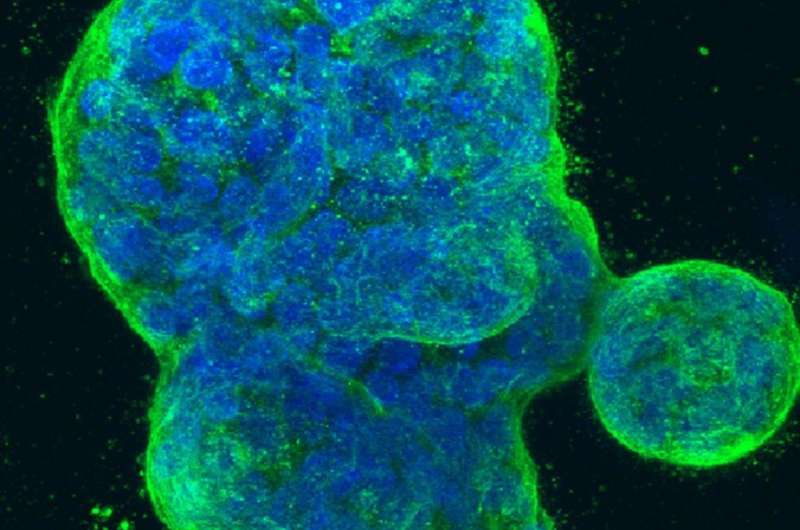Study shows increased risk of breast cancer in transgender women

Transgender women (male sex assigned at birth, female gender identity) using hormone treatment show an increased risk of breast cancer compared with the general male population, finds a large Dutch study published by The BMJ today.
The findings also show that transgender men (female sex assigned at birth, male gender identity) had a lower risk compared with the general female population.
Although the risk in transgender women increased during a relatively short duration of hormone treatment, it is still lower than the general female population.
As such, the researchers say the absolute risk of breast cancer in transgender people remains lower that in the general female population, and therefore current breast cancer screening guidelines are sufficient for transgender people using hormone treatment.
Transgender people experience an incongruence between the sex assigned to them at birth and their experienced or expressed gender, and can receive hormone treatment to induce desired physical changes.
Previous studies have shown that hormone replacement therapy (HRT) increases the risk of breast cancer in postmenopausal women, which could suggest a similarly increased risk in trans women receiving hormone treatment. But information about the risk of breast cancer in transgender people is currently limited.
So a research team, led by Professor Martin den Heijer at the University Medical Centre in Amsterdam, investigated the incidence and characteristics of breast cancer in transgender people receiving hormone treatment, compared with the general Dutch population.
The study included 2,260 trans women and 1,229 trans men receiving gender affirming hormone treatment at a specialist clinic in Amsterdam between 1972 and 2016. National medical records were used to identify breast cancer cases.
Average age at the start of hormone treatment was 31 years for trans women and 23 for trans men. Average treatment time was 13 years for trans women and 8 years for trans men.
Of the 2,260 trans women, 15 cases of invasive breast cancer were diagnosed at an average age of 50 years and after an average 18 years of hormone treatment.
This was higher than the general male population whose gender identity matches the sex they were assigned at birth (cisgender men), but lower than the general female population (cisgender women).
In 1,229 trans men, four cases of invasive breast cancer were identified at an average age of 47 years and after an average 15 years of hormone treatment. This was lower than expected compared with cisgender women.
Despite the large sample size, this is an observational study, and as such, can't establish cause, and the researchers point to some limitations, including missing or incomplete data about type of hormone use, family history, genetic mutations, tobacco and alcohol use, and body mass index.
Based on this study, the authors conclude that "the absolute overall risk of breast cancer in transgender people remains low and therefore it seems sufficient for transgender people using hormone treatment to follow screening guidelines as for cisgender people."
As the risk of breast cancer in trans women increased during a relatively short duration of hormone treatment, they suggest "it would be worthwhile for future studies to investigate in more detail the cause of breast cancer in transgender people receiving hormone treatment."
More information: Breast cancer risk in transgender people receiving hormone treatment: nationwide cohort study in the Netherlands, BMJ (2019). DOI: 10.1136/bmj.l1652 , www.bmj.com/content/365/bmj.l1652

















